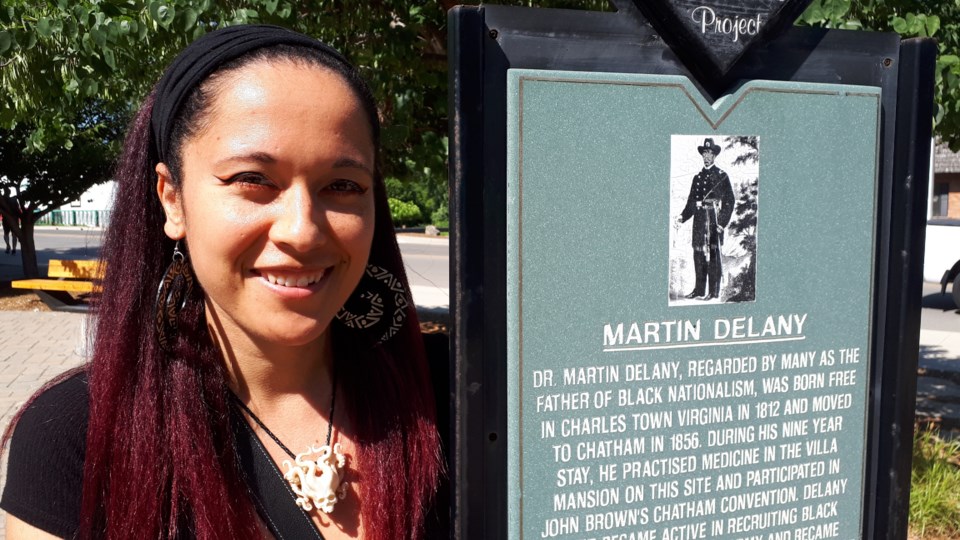Black Canadian history is Canadian history.
And it's a history a University of Guelph professor says everyone should learn.
Deirdre McCorkindale is into her first semester teaching a Black Canadian History course at U of G, a first-year course part of the Black Canadian Studies program launched last fall and a course students asked for.
"I see all different colours when I look out into my class, and that makes me really happy," she told GuelphToday.
"One thing I do want to stress about this course is that Black history is for everyone. You don't have to be Black to learn about this history. And in fact, I think it's wrong to think that because you are of a different background, that you shouldn't have to learn this history because you should."
She said the diversity provides a lot of strength in the course, as students hold discussions from many points of view.
And the open dialogue is useful, she said, in order to learn how to change things on a systematic level. It's also part of the reason she went down the path of teaching this history.
"I wanted to be an activist, and I wanted to change things for the better," McCorkindale said.
"And if you want to change things on a systematic level, whether you're in the corporate world or whether you're in the education world, it doesn't matter, you need to have a base knowledge of what has come before, and those particular systems that you're fighting against."
She said universities have always been really good grounds to teach young people the base ideas, so when students go out in the world, they have the knowledge base to make it a better place.
"You can't really know where you're going if you don't know where you've come from," McCorkindale added.
Things like systematic oppression, understanding where these things come from, understanding anti-Black racism isn't a new thing, it's heavy subject matter but one needed to be talked about.
"I think that's a frustrating thing people seem to think that when we talk about things like police brutality, people act like police brutality is a brand new thing just because they're seeing it on their phones right now," McCorkindale said.
"This has been a longstanding issue. And if we want things to change and the university wants to be a part of change – because university is always been part in parcel to new ideas and change in the world – they have to be a part of that conversation."
She added there's an understanding students may be frustrated coming into the course because they weren't taught things. She's hoping to channel those frustrations to make Black history more accessible for people.
One project the students are working on is a press book, which is an online book that'll be accessible for people.
"Each of them are going to do an entry and it's all about Emancipation Day, which is a holiday that's been celebrated in Canada since the 1830's," McCorkindale said. "Each of them has picked a particular subject, and they're working in groups and they're each going to have an entry into this book."
The benefits look to be two-fold. For one, she said students will get experience, and a writing credit they can put on their resumes "so there's kind of something actionable for them in the course, so they can understand that doing history, doing these things actually has tangible, real world results."
The other is sharing the research and knowledge with a wider audience, and create a resource for educators not in the university system, who she said want to teach this history, but don't have the resources available and unsure where to go.
Eventually if the online resource works out, she'd like to create an accessible textbook built in Guelph.
McCorkindale admits it's tough to truly gauge how students are liking the course until post-course evaluations come in.
But she feels so far, so good.
